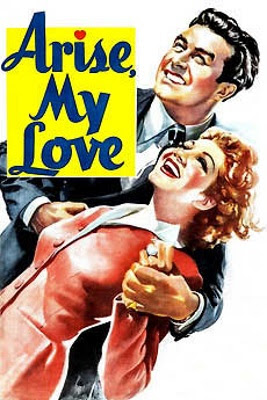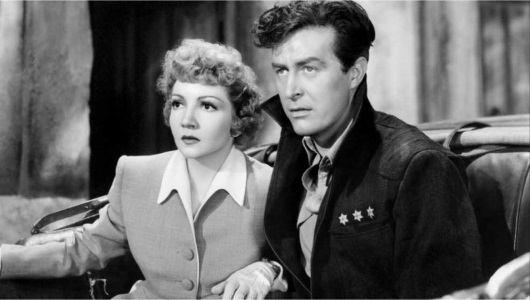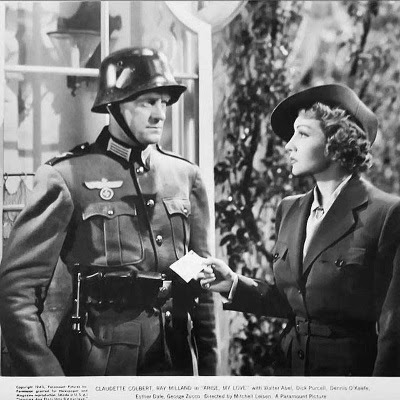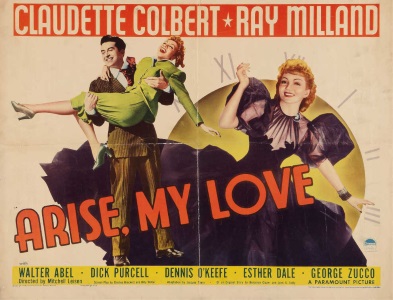Arise, My Love

Director: Mitchell Leisen
Year: 1940
Rating: 7.0
Director Mitchell
Leisen and his scriptwriters Billy Wilder, Charles Brackett and Jacques Théry
produce a strange hybrid of a film that had dual purposes - to entertain
and to warn. It is a screwball comedic romance wrapped tightly within an
anti-Fascist message. Always welcome in my book. Much of the film is about
the budding romance between two characters that is a witty fairly charming
slice of mushy cake but also nothing new - and then Germany invades Poland
and the comedy is gone. The surprising thing though is that this was made
in 1940 - a full year before America entered the war. The movie studios had
done their best to stay neutral during the run-up to the war, not wanting
to offend Germany or upset the American Firsters who were adamant about not
getting America involved and in some cases were pro-German - i.e. Lindberg,
Joseph Kennedy. Sounds familiar. There will always be cowards. But after
Poland the studios saw the writing on the wall and gave filmmakers more leeway
in criticizing Nazis and Germany. Wilder was a German Jew, Théry a
French man - so they had some money in the game.

Martin (Ray Milland) is waiting to be executed
in Spain as the film begins. He was a fighter pilot with a number of kills
for the Republic but the Spanish Civil War is over and he was captured. He
has named the rat in his cell Hitler. He and a few buddies came to Spain
to fight fascism - to help the little guy. His character is based on a real
person - Harold Edward Dahl who was part of a group of American pilots called
the American Patrol. He too was sentenced to death but escaped execution
when his wife called on Franco and convinced him to let her husband go. In
this case though, it is not Martin's wife but a female news reporter who
pretends to be his wife and is able to get the prison commander (George Zucco)
to let him leave. She is played by Claudette Colbert and her character too
is based on a real person - Martha Gellhorn. She was a remarkable person
- reported from all the war zones and even pretended to be a nurse to be
able to get on a ship to D-Day. And also one of Hemingway's wives.

Martin has no idea who she is but plays
along. Unfortunately, he left a will behind him giving his money to his executioners
because he had no wife. A chase ensues that ends up in the skies. Between
all this they trade insults and witticisms like a machine gun. Typical screwball
stuff. You know love can't be far away. And in Paris it inevitably happens.
Amour. But she wants to be a serious journalist and waves off his embraces
and kisses. He wants to go to Poland to be ready for the Germans. She is
sent to Berlin, he to Poland - on the same train - but they get off for a
few more days of amour. In the train she is reading Mein Kamph for research,
but after a few pages, she tosses it out the window. As they lie peacefully
in the forest, they see the squadrons of planes fly above them and know playtime
is over. Newspaper headlines of German conquests flash on the screen - Poland,
Norway, Finland, Paris. In the end there is a similar cry to America as there
was in Foreign Correspondent - Arise America, the war is heading your way.
Build the planes. Train the pilots. Be ready.





